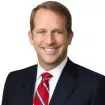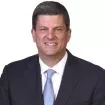- within Compliance, Consumer Protection, Government and Public Sector topic(s)
As Republicans regain control of the Federal Trade Commission ("FTC") under the Trump-Vance Administration, employers that looked to maintain and enforce their non-compete agreements with employees may have found solace in the statements of certain FTC Commissioners who vocally opposed the FTC's nationwide ban on non-compete agreements. However, recent statements by the FTC's newly-appointed Chair, Andrew Ferguson, along with the recent appointment of Commissioner Meador, have revealed that the FTC's scrutiny of non-compete agreements is far from over.
The arrival of the Trump-Vance Administration seemingly ushered in a new directive for federal agencies, including the FTC, to pursue policies that protect American workers. This directive is arguably distinct from prior Republican administrations' signature pro-employer platforms. Indeed, Chairman Ferguson previously opposed the FTC's rule banning non-compete agreements that was promulgated under former FTC Chair, Lina Khan. However, Chairman Ferguson has had a recent change of focus, signaling that, while a blanket ban under the rule may have been unlawful, the FTC will nevertheless prosecute individual abusive uses of non-compete agreements under his leadership and support additional policies aimed at protecting workers.
Chairman Ferguson recently announced the formation of a Joint Labor Task Force in a memorandum addressed to the Directors of the Bureau of Competition, Bureau of Consumer Protection, Bureau of Economics, and Office of Policy Planning. In the memorandum, Chairman Ferguson directed the bureaus to form a Joint Labor Task Force responsible for investigating and prosecuting deceptive, unfair, and anti-competitive labor market conduct, among other directives.1 The memorandum claims that the ability of Americans to earn a living is "harmed by deceptive, unfair, and anti-competitive employer labor practices," and declares that the FTC has the mandate and jurisdiction to fight such practices. As examples of such unfair or deceptive practices and unfair methods of competition, the memorandum lists "non-compete agreements, which employers can use to impose unnecessary, onerous, and often lengthy restrictions on former employees' ability to take new jobs in the same industry after they leave their employment" and "[n]o-poach, non-solicitation, or no-hire agreements, where employers agree to refrain from hiring each other's employees." In announcing the formation of the Joint Labor Task Force, Chairman Ferguson took to social media to declare that the "GOP is a workers' party," and signaled to American workers that the FTC "has their back."2 Chairman Ferguson emphasized that the Joint Labor Task Force "will scrutinize non-compete agreements, deceptive job advertisements, wage-fixing schemes, unlawful coordination on DEI employment metrics, and much more."
Chairman Ferguson's recent pro-worker statements appear to represent a significant policy shift for the soon-to-be Republican majority of the FTC.3 In his dissenting statement against the FTC's ban on non-compete agreements, then-Commissioner Ferguson argued that the rule was unlawful because the FTC lacked the authority and evidence to sustain the rule.4 Commissioner Ferguson took a pro-business stance, claiming that non-compete agreements can "promote an employer's investment in its employees" by reducing the risk that "a rival will ride freely on those investments" by luring employees away "before the investing employer can recoup the return on those investments."5 These prior statements appear to be a dramatic departure, at least in focus, from Chairman Ferguson's recently expressed intent to scrutinize and prosecute non-compete agreements.
In another move, President Trump also nominated Mark Meador to be an FTC Commissioner, filling the third Republican seat on the commission. At his nomination hearing, Meador similarly indicated that the FTC should focus on non-compete agreements in employment contracts, adding that non-compete agreements have been "overused and abused."6 Although Meador declined to comment on the FTC's rulemaking authority due to the pending litigation, Meador emphasized that the FTC should investigate how it could use its "traditional enforcement powers" to address the harms of non-compete agreements. Meador's statements suggest that although the FTC, under a soon-to-be Republic majority, will likely not use rulemaking to go after noncompete agreements, it will nonetheless go after non-compete agreements.
Ultimately, despite a change in leadership, the FTC remains intent and focused on addressing non-compete agreements. Chairman Ferguson's memorandum makes clear that the FTC will go after non-compete agreements that impose unnecessary, onerous, and lengthy restrictions that restrict employees from taking new jobs in the same industry. The actual level of scrutiny that will be applied by the FTC, however, remains to be seen.
Footnotes
1. See Memorandum from Andrew N. Ferguson, Chairman, Fed. Trade Comm'n, on Directive Regarding Labor Markets Task Force (Feb. 26, 2025), https://www.ftc.gov/system/files/ftc_gov/pdf/memorandum-chairman-ferguson-re-labor-task-force-2025-02-26.pdf
2. @AFergusonFTC, X (Feb. 26, 2025, 3:41 PM), https://x.com/afergusonftc/status/1894865373134004708?s=46.
3. See Press Release, Fed. Trade. Comm'n, FTC Announces Rule Banning Noncompete (Apr. 23, 2024), https://www.ftc.gov/news-events/news/press-releases/2024/04/ftc-announces-rule-banning-noncompetes.
4. See Andrew N. Ferguson, Comm'r, Fed. Trade Comm'n, Dissenting Statement Regarding In the Matter of the Non-Compete Clause Rule, Matter Number P201200 (June 28, 2024), https://www.ftc.gov/system/files/ftc_gov/pdf/ferguson-noncompete-dissent.pdf.
5. Id. at 38.
6. See Nomination Hearing of Mark Meador for Federal Trade Commission, PN12-29, 119th Cong. (2025), https://www.commerce.senate.gov/2025/2/nominations-hearing-for-michael-kratsios-to-lead-the-office-of-science-and-technology-policy-and-mark-meador-to-serve-as-a-federal-trade-commissioner.
Originally published 07 March 2025
The content of this article is intended to provide a general guide to the subject matter. Specialist advice should be sought about your specific circumstances.




